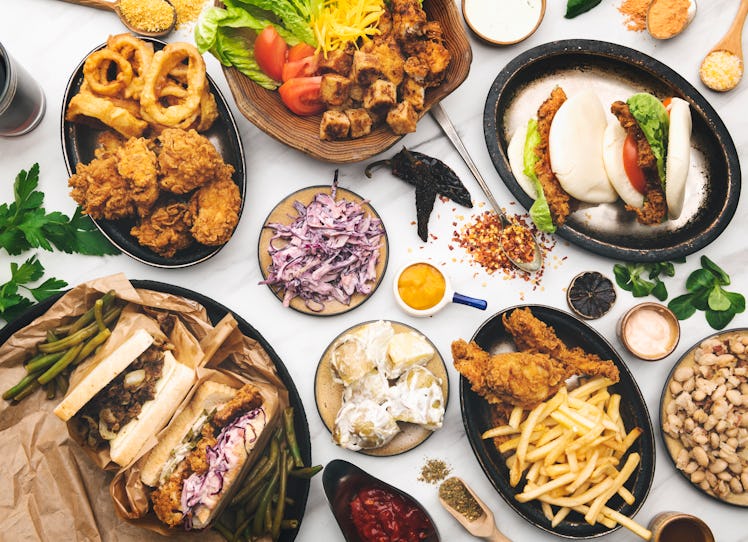
Here's What To Know About Keeping Your Food Safe From Coronavirus
After the novel coronavirus disease, also referred to as COVID-19, was declared a pandemic on Wednesday, March 11, the Centers for Disease Control and Prevention (CDC) recommended everyone practice social distancing, which means staying in your home, avoiding large crowds, and keeping at least six feet away from other people, to prevent spreading the disease. As everyone cooks at home or utilizes pick-up and delivery options through restaurants, you of course want to implement the best practices to stay healthy, so you may be wondering if the coronavirus can spread through food. Thankfully, the CDC has answers.
As the response to the coronavirus changes by the day, the CDC has provided useful guidelines, which individuals can follow to help in an effort to flatten the curve of the coronavirus. The CDC is also continually providing updates on the spread of the coronavirus, including ruling out ways it's not transmitted. The coronavirus is thought to spread from person-to-person through respiratory droplets, such as from coughing or sneezing.
But when it comes to eating, you're in luck: According to the CDC's official coronavirus guidance, "Currently there is no evidence to support transmission of COVID-19 associated with food." While coronavirus may survive for a period of time on different surfaces, there is "poor survivability" when it comes to food products and packaging. Per the CDC, there is a very low risk the novel coronavirus will spread from a food product or package shipped over a period of days or weeks at regulated temperatures.
Then again, that doesn't mean you shouldn't play it safe. Vincent Racaniello, the Higgins Professor of Microbiology & Immunology at Columbia University, tells Elite Daily that the spread of coronavirus through food hasn't "figured into most of the transmissions that we’ve seen so far, but it’s not impossible." Racaniello states that any possible virus transmitted from a food handler to the prepared food "should be inactivated" when cooked.
As for coronavirus surviving on other surfaces, Racaniello suggests exercising caution when receiving delivery or picking up food, as even if the food isn't contaminated, the delivery box could be. Racaniello says a best practice for when you receive food orders is to put the food on a clean plate, quickly discard containers, and then wash your hands. Even if you aren't going to eat the food right away, he suggests you transfer it to a clean container and immediately dispose of the outside packaging.
Grocery store trips are no exception, as Racaniello points out, "everything you touch is potentially contaminated." After bringing your groceries in, make sure you wash your hands, don't touch your face, and maintain a sense of "heightened awareness" when it comes to what you're touching and what you're putting in your mouth.
If you think you’re showing symptoms of coronavirus, which include fever, shortness of breath, and cough, call your doctor before going to get tested. If you’re anxious about the virus’s spread in your community, visit the CDC for up-to-date information and resources, or seek out mental health support. You can find all Elite Daily's coverage of coronavirus here.
Experts cited:
Dr. Vincent Racaniello, Ph.D, Higgins professor of Microbiology & Immunology at Columbia University